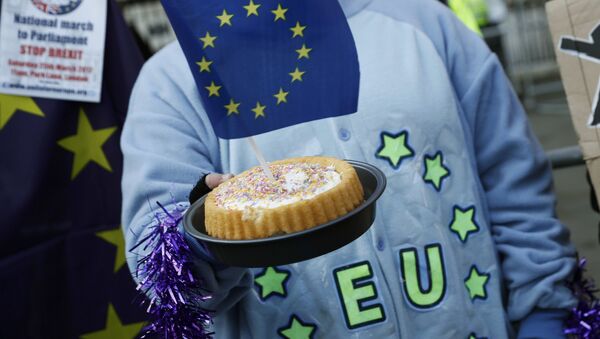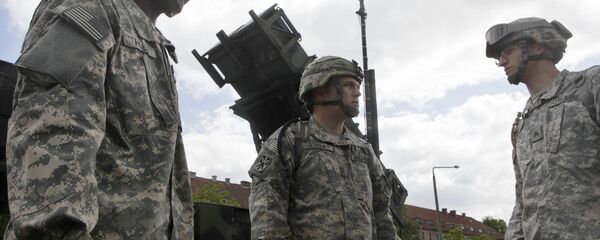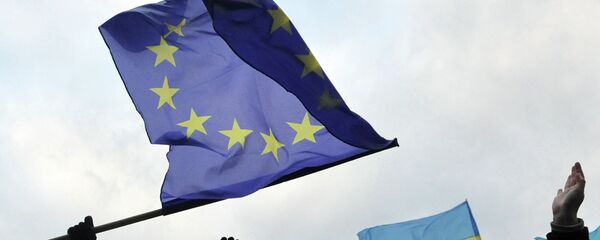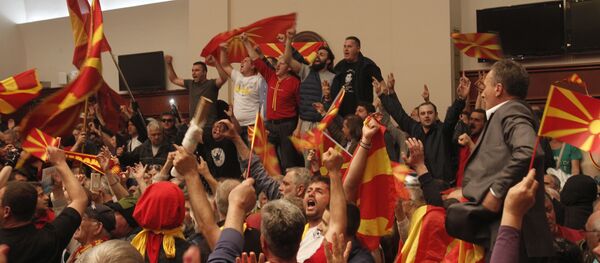Delivering a speech at the annual briefing to UN Security Council on May 9, Federica Mogherini, High Representative of the European Union for Foreign Affairs and Security Policy, called the European Union a "superpower for peace, security, and democracy."
However, according to Igor Pshenichnikov, advisor to the director of the Russian Institute for Strategic Studies (RISS), it appears to be wishful thinking.
As he remarked in his recent op-ed for RIA Novosti: "Could a superpower be ruled from across the ocean? Yes, it could, but in this case, it is no longer a superpower."
"In sixty years of history, we have become a superpower for peace in the European Union," Mogherini said Tuesday, "a superpower for peace but also for security and democracy. We are accompanying reconciliation processes at all corners of the world, from Afghanistan to Myanmar."
The #EU is what we, Europeans, make of it – every single day, each one of us. #EuropeDay #EU60 🇪🇺 pic.twitter.com/QaYkeqcFGS
— Federica Mogherini (@FedericaMog) 9 мая 2017 г.
"The European Union has become in these years, in these decades, in these sixty years of our history, not only the most successful peace project in the world, but also an indispensable partner to move beyond the current disorder, and to try to build together a more cooperative world order," she stressed.
First, it's not the EU, who is calling the shots in Europe but the United States, he highlighted.
Apparently, therefore, Trump's win caught the EU leadership off guard. Trump's tough attitude toward the EU and NATO and the pledge to "get along with" Russian President Vladimir Putin prompted fear in Brussels.
"[Following Trump's win] European officials and the NATO leadership felt themselves sailing without a rudder. 'Who is our helmsman now? Where do we go?' this was the general mood behind the statements of high-ranking EU and NATO officials and European politicians who regarded Trump as a threat to the established European status-quo," Pshenichnikov wrote.
As for Brussels' efforts to strengthen peace and democracy worldwide, one does not need to go far in search of proof but take a look at the simmering conflict in the Balkan region.
According to Pshenichnikov, the EU is deliberately adding fuel to the fire in the Balkans.
"Every time when the conflict threatens to transform into a new Balkan war, the European Union either takes the side of the Muslims or maintains the position of 'non-interference', which is tantamount to condoning the provocations on the part of the Albanians," the Russian scholar noted.
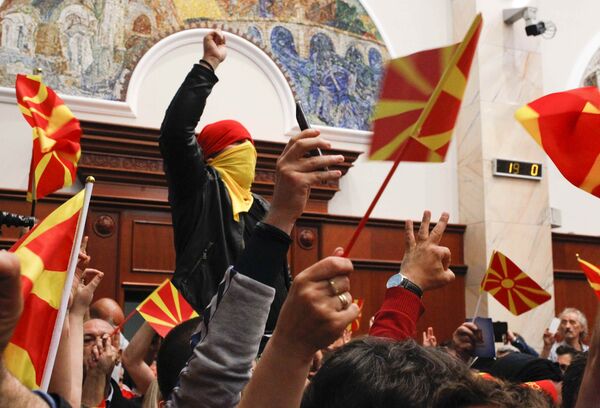
Recently, the EU and NATO have exerted pressure on Macedonian President Gjorge Ivanov, forcing him to embrace the demands of the Albanian minority and thus open the door to the country's federalization and further fragmentation.
"Recently Albanian parties, along with the opposition [Social Democratic Union of Macedonia party], elected the Albanian as the speaker of the local parliament, in violation of the law. That sparked off the protest on the part of President [Ivanov] and led to mass protests in Macedonia. Who requires the president of Macedonia to agree on the formation, in fact, of an anti-national government and recognition of the legitimacy of the election of the speaker? NATO and the European Union," Pshenichnikov pointed out.
"To understand how the European governance works, one should see how following the accession of Eastern European countries [Brussels] has divided [Europe] into suzerains and vassals," he remarked.
But that is not all: even in major European states, Eurocrats are fighting tooth and nail against any nationalist or right-wing agenda.
An all-out European media campaign targeting France's National Front leader and former presidential candidate Marine Le Pen was the shining example of this approach.
"It has nothing to do with political programs or the social struggle for power in the state. The truth of the matter is that today there are two major forces fighting in the West — the globalist bureaucracy, which represents large transnational corporations and the forces advocating national and cultural self-preservation, which possess lesser financial resources. So far, the first camp is winning in Europe," Pshenichnikov emphasized.
